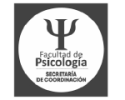
Background:
In neuropsychology, fully immersive virtual reality (VR) has been spotlighted as a promising tool. It is considered that VR not only overcomes the existing limitation of neuropsychological tests but is also appropriate for treating executive functions (EFs) within activities of daily living (ADL) due to its high ecological validity. While fully immersive VR offers new possibilities of neuropsychological tests, there are few studies that overview the intellectual landscape and academic trends in the research related to mainly targeted EFs with fully immersive VR.
Objective:
The objective of this study is to get an overview of the research trends that use VR in neuropsychological tests and to analyze the research trends using fully immersive VR neuropsychological tests with experimental articles.
Methods:
This review was carried out according to Preferred Reporting Items for Systematic Reviews and Meta-Analyses (PRISMA) guidelines. Articles were searched in three web databases using keywords related to VR, EFs, and cognitive abilities. The study was conducted in two steps, keyword analysis and in-depth systematic review. In the web database search from 2000 to 2019, 1167 articles were initially collected, of which 234 articles in the eligibility phase were used to conduct keyword analysis and a total of 47 articles were included for systematic review.
Results:
In keyword analysis, the number of articles focused on dementia including the keywords “MCI,” “SCD,” and “dementia” were highlighted over the period, rather than other symptoms. In addition, we identified that the use of behavioral and physiological data in virtual environments (VEs) has dramatically increased in recent studies. In the systematic review, we focused on the purpose of study, assessment, treatment, and validation of usability and structure. We found that treatment studies and uncategorized studies including presence and cybersickness issues have emerged in the recent period. In addition, the target symptoms and range of participants were diversified.
Conclusions:
There has been a continuously increasing interest in dealing with neuropsychology by using fully immersive VR. Target cognitive abilities have been diversified, as well as target symptoms. Moreover, the concept of embodied cognition was transplanted in this research area.
Citations:
2. Arjona, Antonio & Gomez, Carlos & Rodríguez-Martínez, Elena & Paulino, Catarina & Gómez‐González, Jaime & Diaz‐Sánchez, José. (2020). Attention‐deficit/hyperactivity disorder in children and adolescents: An event‐related potential study of working memory. European Journal of Neuroscience. 10.1111/ejn.14767.
3.García-López, C., Sánchez-Carpintero, R., Crespo-Eguílaz, N., & Narbona-García, J. (2012). AULA Nesplora como medida de la atención: Validación convergente con el Continuous Performace Test en niños con TDAH. Póster presentado en el XVI Curso Internacional de Actualización en Neuropediatría y Neuropsicología Infantil. Marzo 2012
__
Full text: https://pubmed.ncbi.nlm.nih.gov/34822341/












Este proyecto ha recibido financiación de la Unión Europea del programa de investigación e innovación
Horizon 2020 bajo el acuerdo Nº 733901
© 2025 Nesplora S.L.
New Nesplora online application
Nesplora
desktop application
New Nesplora online application
Nesplora
desktop application